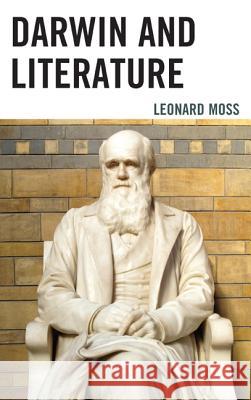Darwin and Literature » książka
Darwin and Literature
ISBN-13: 9780739185322 / Angielski / Twarda / 2014 / 188 str.
Although their vocabularies differ, biologists, biblical authors, and playwrights describe the paradox that Charles Darwin outlines in The Origin of Species (1859) when he observed the coexistence of a drive for permanence and a contrasting capacity to modify, deviate from, or transform established identities. The Torah; Books of Ecclesiastes, Job, and Matthew; and plays by Shakespeare, O'Neill, and Beckett embody a convergence of constancy and change. Their principle literary mechanisms--their challenge-response narrative design, rhetorical repetitions, and metaphorical associations--translate a biological contradiction into a moral dilemma that leads to recurring Darwinian outcomes. An evolutionary process becomes the template for the progressions and problems of belief systems transmitted by masterpieces of Western literature. Surprisingly, most biblical writing celebrates an outcome entirely consonant with the narratives of evolution. This study deals primarily with characters and their communities in biblical and tragic texts who toil mightily, usually with limited success, to integrate the certainty of inherited dogma with the originality of useful change. Through this study, the author concludes that Darwin's insight can expand an understanding of literature, and literary analysis will support Darwin's insight.











